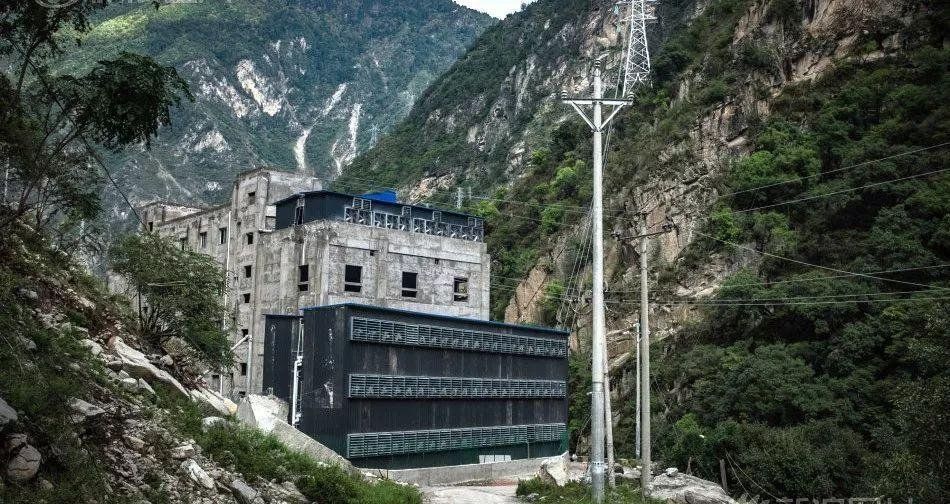Those Bitcoin miners who have been working hard in remote areas of China may have never dreamed of this to happen: Becoming the target of the financial regulatory authorities.
Against such a backdrop of tighter regulations in China, how shall these miners deal with the dilemma? Going abroad to continue mining? Quit and look for a new career? PANews has interviewed a number of people in the mining industry: Most of them feel helpless amid the situation but prefer to keep a close watch at the implementation of new regulations and policies in hope of a room for an easing policy. Meanwhile, going abroad is another option for them though this also means uncertainties with more risks and greater challenges.
Regulating mining: The Sword of Damocles hangs over the industry
On May 27, the Sichuan Energy Regulatory Office of the National Energy Administration (“the Office”) announced that it will hold a symposium on June 2 to look into the crypto mining sector and analyze how the shutdown of the sector would impact on the amount of surplus water in Sichuan this year.
Just two days earlier, the Inner Mongolia Development and Reform Commission rolled out eight measures in a bid to crack down on crypto mining, a series of refined policies and regulations of supervision. The measures also cover such situations as mining at Internet cafes and such penalties as being named on the blacklist of credit information sharing platform if one violates, for the first time.
Sichuan is a key province in China for Bitcoin mining as it could consume more than 50% of the total electricity used in crypto mining nationwide during a Wet Season. It’s believed that detailed regulations and measures will follow soon after the Office’s announcement.

Regarding this,Bohe Liangyou from Qimiao Mining shared her views in an interview with PANews that Sichuan will be a model for other cities and provinces to follow as they may introduce measures based on local conditions on power consumption.
'Reaching peak carbon dioxide emissions by 2030 is an important part of the 14th Five-Year Plan of China. In the Wet Season of 2021, provinces with large amounts of surplus water may not be affected as mining is an environmentally-friendly industry with very low-carbon emissions. But its problem is high energy consumption, which will in fact impact during the Normal and Dry seasons.”
'Probably, a large number of mining machines will be relocated overseas during the Normal and Dry seasons this year though it will be dependent on how well the Covid-19 is being controlled overseas,' Bohe added.
In Sichuan, Bitcoin mining uses hydroelectricity, which is a kind of clean renewable energy. Most of such power used by mining enterprises there is the so-called 'Industrial Park Electricity' from the Sichuan Provincial Hydroelectricity Consumption Industrial Demonstration Zones.
In Inner Mongolia, however, thermal power is used instead, and the region’s stricter regulatory measures to crack down on crypto mining are a result from the country’s action plan for carbon peaking and carbon neutralization.
Chinese miners going out?
Security and stability remain as top priorities.
'Wait and see. In the end, it will not be one policy with no flexibility,' said Xiao Ying, a miner who decides to wait for further announcement. She told PANews that she will play things by ear.
'It will turn out on June 2 whether to shut down crypto mining or not. So, let's see,' shared by Da Wang who has been mining for years.
If Sichuan follows the Inner Mongolia’s step by introducing tighter regulations and policies, how shall miners and mining enterprises deal with the situation? 'If so, going out will be the option. Top destinations will be developed countries, like in North America, as they have a looser political environment as well as regulations. For instance, the Unite States and Canada; Many miners have relocated to Central Asia such as Kazakhstan; In the case of the Middle East and Russia, most miners would probably not go for this option now,” BTC.TOP CEO Jiang Zhuo’er told PANews, “There have been cases when miners had worked over there for a while but their mining machines were confiscated after various inspections and bans. So, the top priority will be the security of mining machines for sure if going abroad.'
The anonymous interviewee, Head of a Chinese mining enterprise, also expressed his concerns in safety and security to PANews regarding going out. 'We probably will move to North America or Central Asia. But the biggest risk will still be the confiscation of mining machines along with the corporate properties.' He shared that he will remain in the mining industry with an optimistic attitude to embrace new regulations and to wait for further detailed measures and policies.
Undeniably, the Bitcoin hashrate center is accelerating its pace to shift from China to North America while many Chinese miner wait and see which way to go. A Bitcoin mining map designed by Cambridge Centre for Alternative Finance shows that China’s mining accounted for 65% of Bitcoin avg. monthly hashrate in Q2/2020 from the 75.62% compared to a year ago. At the moment, the US comes at the 2nd with 7.24%, followed by Russia with 6.9% and Kazakhstan with 6.17% by avg. monthly hashrate.

Jiang Zhuo’er also depicted the mining industry in China under the strictest regulation scenario: 'Some of the mining machines would be ‘recycled’ by domestic small-and-medium-size miners as well as family miners. If they couldn’t continue mining in China, they would move abroad. Meanwhile, some mining machine manufacturers in China would sell mining machines overseas, such orders of new mining machines like S19. If selling mining machines domestically would be regarded as fighting against regulation, then exporting machines overseas is another story. I guess everybody knows how to make the choice.'
No matter what happens in the future, looking back, it is clear that the infrastructures for Bitcoin mining and hashrate have accelerated the pace of moving to North America. China’s dominance of Bitcoin hashrate is losing its grip...










